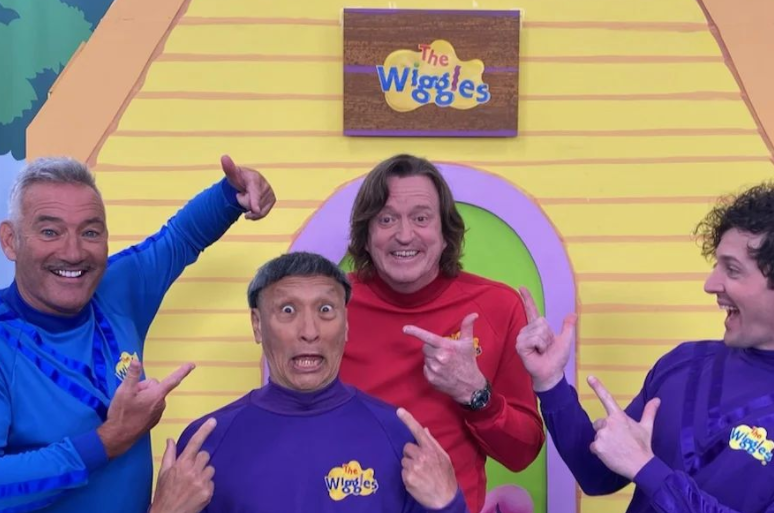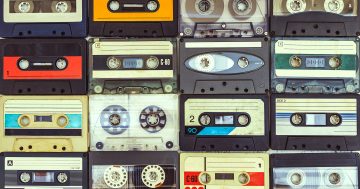
Does winning the Triple J Hottest 100 make the Wiggles the hottest rockers in the country? Probably not. Photo: The Wiggles.
Like many of my peers, I was a fan of Triple J as a young person. I would listen to the radio in my older sister’s bedroom from when I was 12 or 13 and have my fingers poised over the cassette tape record button to grab copies of songs that I loved.
Eventually, when I had a Nokia mobile phone at age 17, I would text in requests under a fake name for music from indie Australian bands I loved.
My first car had multiple Triple J bumper stickers, and I religiously followed the Hottest 100, Home and Hosed program, and kept an eye on Unearthed to find out about new and emerging artists. In my 20s, I was a regular writer for street press, including BMA and Faster Louder. I got to interview many incredible Australian musicians and bands and attend many, many gigs and festivals.
I say this to preface what I’m sure will be an unpopular opinion, but one I know is shared by at least a few others on the internet, based on the reporting following this year’s Hottest 100 results.
My question is: does the Hottest 100, and Triple J more generally, have a different purpose from when I was younger, or am I just officially old and out of touch? (To clarify, I’m 32.)
Triple J has always held a place as an alternative station that championed Aussie artists, emerging, underground, indie and alternative music from here and overseas, and that generally existed to provide a forum for music that would be less likely to reach a large or mainstream audience than pop music that could be heard regularly on commercial stations.
I’m still a Triple J listener (though not as religiously as I once was), and I know that the station still champions Aussie artists. But every year, I watch the trend of songs in the Hottest 100 move further and further towards mainstream pop, with big-name international artists vying for a top 10 position, and fewer and fewer homegrown artists and their music making the cut. I find myself pondering whether it’s the chicken or the egg, or indeed the hatchery that is driving this change.
Are Australian listeners not interested in the same music as they once were? Has digital streaming changed the way we listen to and discover music? Is Triple J now operating in a more mainstream space than it did in years gone by? Is the Hottest 100 now a site for joke voting (hello, Wiggles), or has it reached such a large audience now that the voting skews towards musicians with commercial success?
Or am I just another out of touch millennial fixating on a nostalgic fantasy of the past being somehow more authentic and connected to the cutting edge of music, and projecting my own baggage onto the playlist?
I remember in 2015 when the biggest controversy in Australian music was whether or not people should be able to vote for Taylor Swift in the Hottest 100. The overwhelming feeling was that for the pop star to win would be against the very ethos and purpose of the list, which was designed to celebrate and reflect the music that Triple J fans loved over the past year.
The implication inherent to this was that big-name pop stars should not and would not genuinely achieve a position on the Hottest 100 without fans deliberately setting out to hijack the platform because the tastes of Hottest 100 voters didn’t generally incorporate Swift or her ilk.
In 2022, though, artists like Doja Cat and Olivia Rodrigo had multiple songs on the list, showing that the status of the Hottest 100 has undoubtedly changed. Is there less indie and alternative music being made? Or are we just listening to it less? Or is the time of the Triple J-listening, pretentious music snob/hipster type officially over?
If anyone needs me, I’ll be listening to Double J, with my music-snob tail between my legs.















